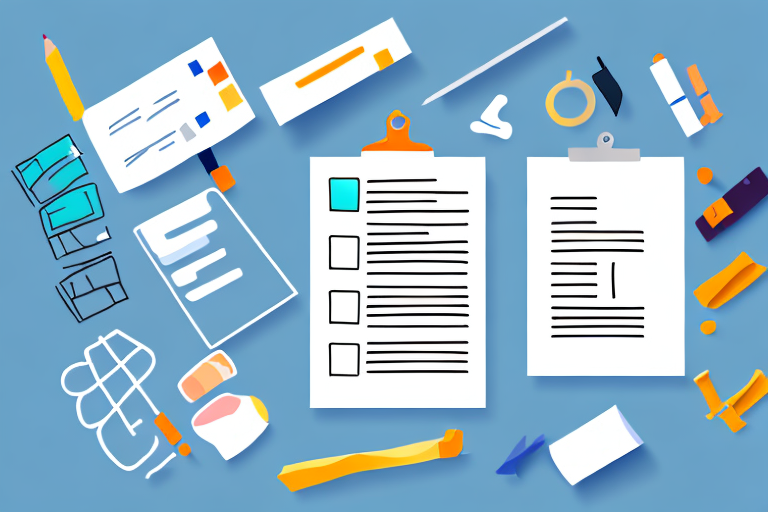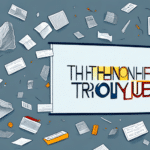Importance of Productivity
Why Productivity is Important for Success
Productivity is essential for achieving personal and professional goals, whether you're an employee, student, or business owner. Being productive allows you to accomplish more in less time, providing a competitive advantage in any field. According to a McKinsey report, increased productivity correlates with higher standards of living and economic growth.
Moreover, productivity enhances efficiency and effectiveness in completing tasks and projects, leading to greater opportunities for growth and advancement. Effective time management and prioritization enable you to focus on the most important tasks, minimizing time wasted on non-essential activities. This not only improves performance but also allows you to allocate more time to activities that matter most to you.
Additionally, maintaining high productivity can positively impact your mental health. Achieving your goals provides a sense of accomplishment and satisfaction, boosting self-esteem and reducing stress and anxiety levels. Studies have shown that productive individuals often experience greater overall well-being and a more fulfilling life.
The Role of Positive Thinking in Productivity
Positive thinking significantly influences productivity by fostering motivation and resilience. A study by the American Psychological Association highlights that individuals with a positive outlook are better equipped to handle challenges and maintain focus on their goals. Techniques such as visualization, practicing gratitude, and surrounding yourself with supportive people can enhance your positivity and, in turn, your productivity.
Understanding and Overcoming Procrastination
The Science Behind Procrastination and How it Affects Productivity
Procrastination is a widespread issue that undermines productivity, characterized by delaying or postponing tasks in favor of more enjoyable or easier activities. Research from the American Psychological Association indicates that procrastination is often linked to anxiety, fear of failure, and low motivation. These psychological factors can lead to missed deadlines, lower quality work, and increased stress levels.
Furthermore, studies have found that procrastinators tend to perceive time differently, viewing it as less structured and more fluid, which complicates prioritization and effective time management. This altered perception often results in lower self-control and higher impulsivity, making it harder to resist distractions and maintain focus on essential tasks.
How to Overcome Procrastination and Get Things Done
Overcoming procrastination involves implementing strategies that address its underlying causes. One effective method is to break large projects into smaller, manageable tasks, making the work feel less overwhelming and more achievable. Tackling the most important or challenging tasks first, especially during peak energy times like the morning, can enhance focus and productivity.
Setting specific and attainable goals, utilizing timers to stay on track, and minimizing distractions by turning off notifications or creating a quiet workspace can further aid in combating procrastination. Additionally, identifying and addressing the root causes, such as fear of failure or lack of confidence, can strengthen your ability to stay motivated and committed to your tasks.
Recognizing that procrastination is a habit that can be changed with consistent effort is crucial. Start by setting small, incremental goals and celebrating your successes along the way. Maintaining self-compassion and avoiding self-criticism can prevent the reinforcement of procrastination tendencies, paving the way for more productive behaviors.
Effective Time Management Strategies
The Benefits of Prioritizing Your Tasks
Effective task prioritization is fundamental to enhancing productivity. By identifying and focusing on the most important and urgent tasks, you ensure that your time and energy are allocated efficiently. Creating a to-do list and ranking items based on their significance and deadlines can help maintain focus and organization throughout the day.
Prioritizing tasks not only prevents feeling overwhelmed but also allows you to break down larger tasks into smaller, more manageable ones. It also helps in identifying and eliminating low-priority tasks that can be delegated or postponed, thereby freeing up time for more critical activities. Ultimately, prioritization leads to increased productivity, reduced stress, and more efficient achievement of your goals.
Tips for Effective Time Management
Effective time management is crucial for maximizing productivity. Key strategies include:
- Set Clear Goals: Define what you aim to achieve, using the SMART criteria (Specific, Measurable, Achievable, Relevant, Time-bound).
- Establish Priorities: Focus on high-priority tasks before moving on to less important ones.
- Delegate Tasks: Assign tasks to others when appropriate to free up your own time for critical activities.
- Track Time Spent: Monitor how much time you spend on each task to identify and eliminate inefficiencies.
- Take Regular Breaks: Avoid burnout by incorporating short breaks into your schedule, which can help maintain focus and energy levels.
Utilizing tools like calendars, timers, and scheduling apps can further enhance your ability to manage time effectively.
Additionally, it is important to identify and eliminate time-wasting activities. This includes reducing excessive social media usage, postponing non-urgent emails, and avoiding unnecessary meetings. By minimizing these distractions, you can dedicate more time to important tasks and improve your overall productivity.
How to Eliminate Distractions and Stay Focused
In an increasingly distractible world, maintaining focus is a significant challenge. Strategies to eliminate distractions include:
- Turning off your phone or using apps that block distracting notifications.
- Closing unnecessary tabs and windows on your computer to reduce digital clutter.
- Creating a quiet and dedicated workspace to minimize environmental distractions.
- Using noise-cancelling headphones or playing instrumental music or white noise to block out unwanted sounds.
- Setting specific goals and deadlines to provide clear direction and accountability.
Incorporating regular breaks and practicing mindfulness techniques, such as meditation or deep breathing, can also help recharge and refocus your attention, enhancing overall productivity.
The Power of Breaking Down Big Tasks into Smaller Ones
Dividing large tasks into smaller, more manageable components can significantly enhance motivation and reduce the likelihood of procrastination. This approach makes daunting projects feel less overwhelming and provides clear steps for progression. Tracking your progress through each small task also allows you to celebrate incremental victories, which can boost motivation and sustain productivity throughout the project.
The Importance of Taking Breaks to Boost Productivity
Contrary to popular belief, taking regular breaks can actually improve productivity. Research from the National Institutes of Health indicates that breaks help maintain sustained focus, prevent burnout, and enhance overall performance. Activities like walking, stretching, meditating, or simply stepping away from work for a few minutes can refresh your mind and body, allowing you to return to tasks with renewed energy and clarity.
Setting and Achieving Goals
How to Set Realistic Goals and Achieve Them
Setting realistic and attainable goals is vital for sustained motivation and success. To create effective goals, utilize the SMART framework:
- Specific: Clearly define what you want to accomplish.
- Measurable: Ensure that your goal can be tracked and measured.
- Achievable: Set goals that are realistic and attainable.
- Relevant: Align your goals with your broader objectives and values.
- Time-bound: Assign a deadline to your goal to foster urgency.
By adhering to SMART goals, you can maintain focus on the most important tasks, monitor your progress effectively, and sustain motivation throughout the process. Regularly reviewing and adjusting your goals as needed can further enhance your ability to achieve them.
Building a Productive Routine
How to Create a Productive Daily Routine
A well-structured daily routine is foundational to maintaining high productivity levels. Key elements of a productive routine include:
- Consistency in waking up and going to bed at the same time each day.
- Scheduling time for exercise, relaxation, and social activities to maintain a balanced lifestyle.
- Allocating dedicated time blocks for work and prioritized tasks to ensure focused productivity.
Finding a balance that works for you enables you to optimize your productivity and make the most of each day.
Delegating Tasks: How to Work Smarter, Not Harder
Delegating tasks is an effective strategy for enhancing productivity by allowing you to focus on your most important responsibilities. To delegate effectively:
- Identify tasks that can be outsourced or handled by others.
- Communicate clear expectations and provide necessary support and resources.
- Trust your team members to complete the tasks, offering feedback as needed.
By delegating appropriately, you can maximize your productivity and achieve better results while fostering a collaborative and efficient work environment.
Tools and Habits for Productivity
Tools and Apps to Help You Stay Organized and Productive
Numerous tools and applications can aid in staying organized and enhancing productivity. Popular options include:
- Trello: A versatile project management tool that uses boards, lists, and cards to organize tasks.
- Asana: A comprehensive platform for task management and team collaboration.
- G Suite: A suite of productivity tools including Gmail, Google Drive, and Google Calendar.
- Evernote: A note-taking app that helps in organizing information and managing tasks.
These tools help in prioritizing tasks, tracking progress, and managing time effectively, thereby streamlining workflows and maintaining focus on daily responsibilities.
Common Habits That Kill Productivity and How to Avoid Them
Certain habits can significantly undermine productivity if not addressed. Common productivity killers include:
- Multitasking: Attempting to handle multiple tasks simultaneously can reduce efficiency and increase errors.
- Procrastination: Delaying tasks leads to last-minute rushes and compromised quality of work.
- Poor Planning: Lack of organization and unclear goals can result in scattered efforts and inefficiency.
- Disorganization: Cluttered workspaces and disordered schedules hinder focus and productivity.
By recognizing and addressing these detrimental habits, you can foster more productive behaviors and enhance your ability to achieve your goals effectively.
Conclusion
Overall, productivity is about working smarter, not harder. By prioritizing tasks, breaking down large projects into smaller ones, minimizing distractions, and establishing a productive daily routine, you can optimize your time and energy. Implementing the tips and strategies outlined in this article will help you increase productivity, achieve your goals more efficiently, and reach greater levels of success and fulfillment.




















